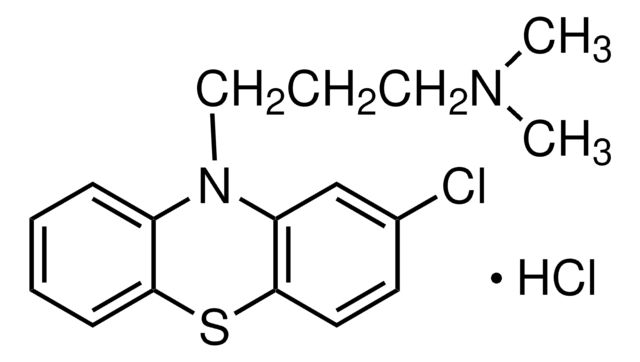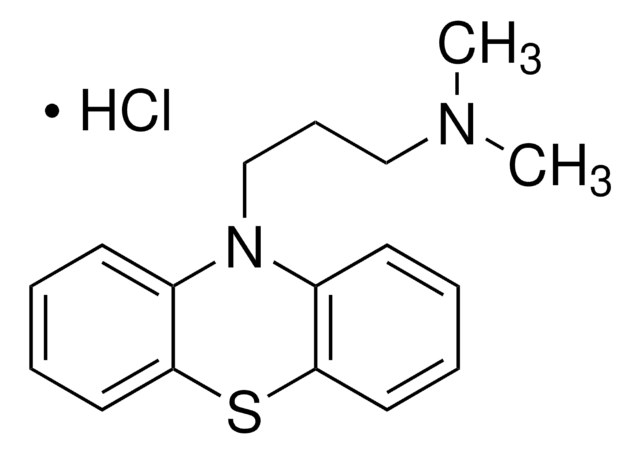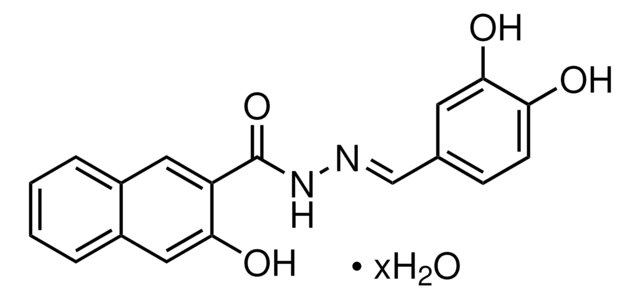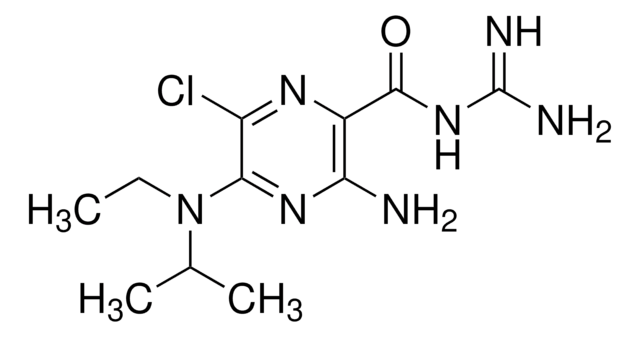1125006
USP
Chlorpromazine hydrochloride
United States Pharmacopeia (USP) Reference Standard
Synonym(s):
2-Chloro-10-(3-dimethylaminopropyl)phenothiazine hydrochloride, CPZ, Largactil
About This Item
Recommended Products
grade
pharmaceutical primary standard
API family
chlorpromazine
manufacturer/tradename
USP
application(s)
pharmaceutical (small molecule)
format
neat
storage temp.
2-8°C
SMILES string
Cl[H].CN(C)CCCN1c2ccccc2Sc3ccc(Cl)cc13
InChI
1S/C17H19ClN2S.ClH/c1-19(2)10-5-11-20-14-6-3-4-7-16(14)21-17-9-8-13(18)12-15(17)20;/h3-4,6-9,12H,5,10-11H2,1-2H3;1H
InChI key
FBSMERQALIEGJT-UHFFFAOYSA-N
Gene Information
human ... DRD2(1813) , DRD3(1814) , DRD4(1815) , HTR2A(3356)
Looking for similar products? Visit Product Comparison Guide
General description
Application
- Chlorpromazine
- Chlorpromazine Hydrochloride
- Chlorpromazine Hydrochloride Injection
- Chlorpromazine Hydrochloride Oral Concentrate
- Chlorpromazine Hydrochloride Syrup
- Chlorpromazine Hydrochloride Tablets
Biochem/physiol Actions
Analysis Note
Other Notes
related product
Signal Word
Danger
Hazard Statements
Precautionary Statements
Hazard Classifications
Acute Tox. 1 Inhalation - Acute Tox. 3 Oral
Storage Class Code
6.1A - Combustible acute toxic Cat. 1 and 2 / very toxic hazardous materials
WGK
WGK 3
Flash Point(F)
Not applicable
Flash Point(C)
Not applicable
Choose from one of the most recent versions:
Certificates of Analysis (COA)
Sorry, we don't have COAs for this product available online at this time.
If you need assistance, please contact Customer Support.
Already Own This Product?
Find documentation for the products that you have recently purchased in the Document Library.
Customers Also Viewed
Our team of scientists has experience in all areas of research including Life Science, Material Science, Chemical Synthesis, Chromatography, Analytical and many others.
Contact Technical Service










